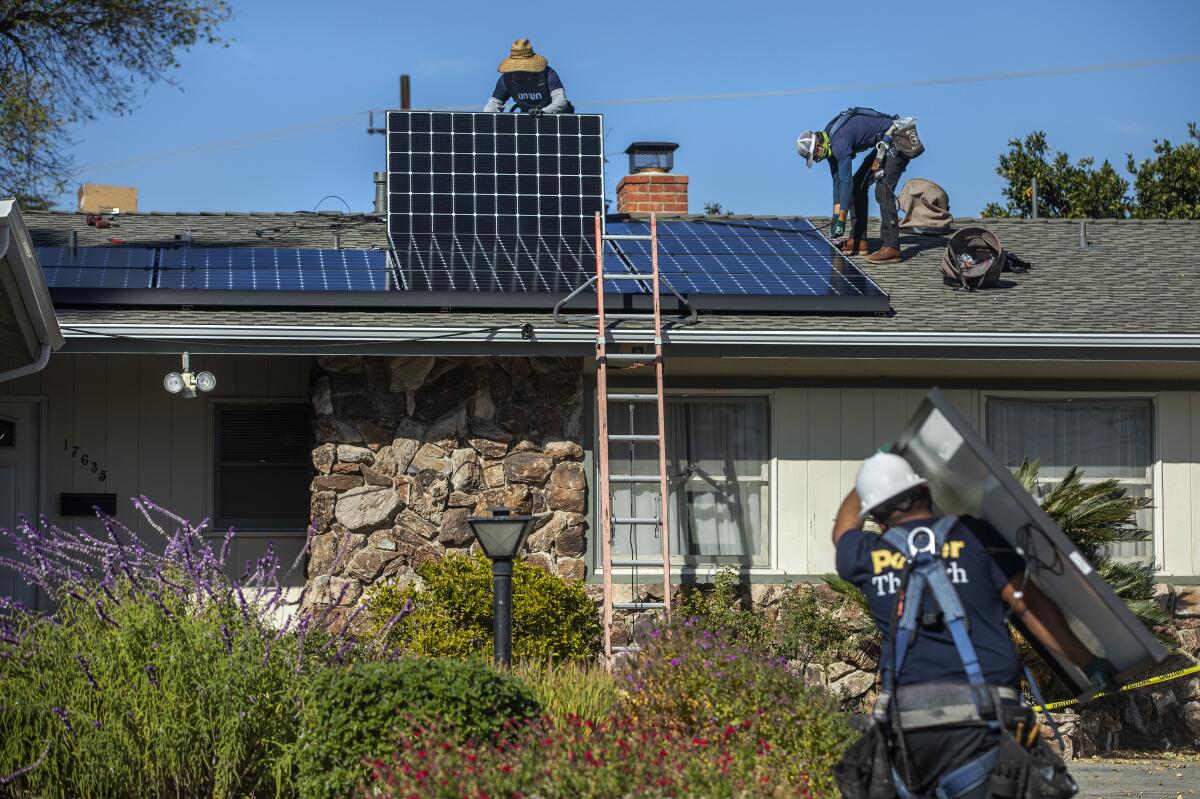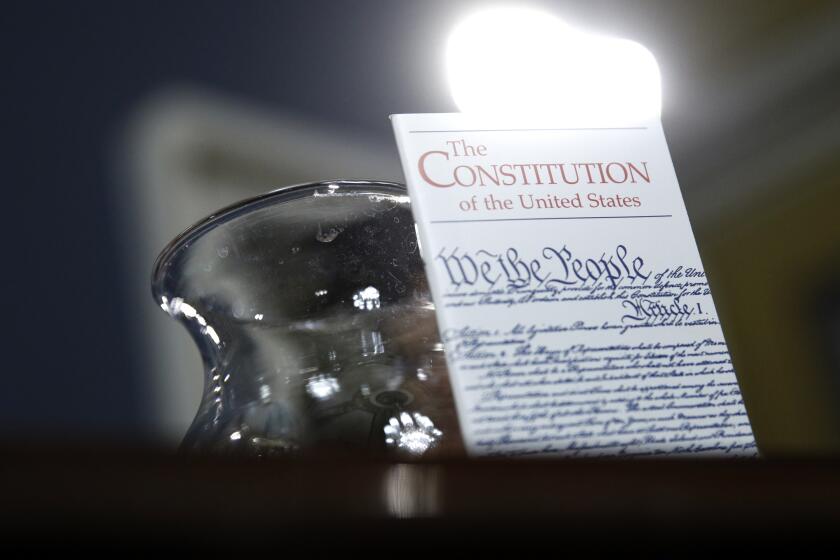Letters to the Editor: Polluted air, higher bills — how dirty energy costs DWP ratepayers

- Share via
To the editor: In the article, “L.A. is going electric. Can it do so equitably?” Jack Humphreville asks with regard to Department of Water and Power clean energy programs, “How do they benefit the ratepayers and the department?”
They benefit the ratepayers by providing clean air and reducing damage to the environment, including from pollutants that cause climate change.
As for rate increases, what critics of clean energy programs don’t realize is that once renewable energy infrastructure is in place, it costs less to produce electricity because there are no fuel costs. The DWP is already buying solar energy for less than it would pay to produce that electricity by burning fossil fuels.
Murray Zichlinsky, Long Beach
..
To the editor: I used to sell solar energy systems to residences, both modest homes and large, expensive ones. As part of the process, I used the owner’s prior usage to determine how big the system needed to be.
Wealthy folks in large homes used a tremendous amount of electricity. It was clear they were wasting most of it by leaving all the lights on, running multiple refrigerators, having pools with pumps and living in a too-large house that needed to be air-conditioned. That waste cost them, since rates are tiered.
I suggest that the DWP increase the top-tier rate to get enough money to cover incentives for efficiency upgrades and solar systems. Only wasteful ratepayers are penalized, as they should be.
Paul Scott, Santa Monica
..
To the editor: If most residents of Los Angeles are renters, why have there been so few solar installation incentives for apartment buildings?
If the DWP wants to help low-income and nonwhite Angelenos, who tend to be renters, it needs to rethink incentives that primarily target homeowners.
Daniel Tenenbaum, Pacific Palisades






